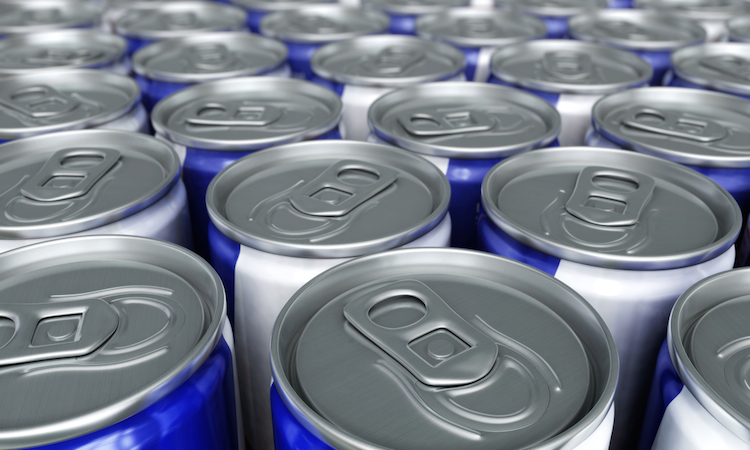What’s the difference between “natural” and your standard energy drink?
By Caitlin Schille
Energy drinks are everywhere. There are entire sections of grocery stores and gas stations devoted to the brightly colored, attractively named pick-me-ups. Some are not much more than chemicals and artificial flavors while other claim to be “natural” alternatives. Which do you turn to for that quick shot in the arm when you have 4 hours left in the workday and you feel like you’re not going to make it? Better yet, should you resort to energy drinks, natural or otherwise, at all?
Common energy drinks, despite their popularity, have received much negative press due to harmful ingredients and their link to serious health consequences. To make matters worse, your typical energy drink, which claims to treat the causes of low-energy, simply masks the problem, and then exacerbates it.
These health consequences are more serious than heightened nervousness or shakiness. According to livescience.com, health outcomes linked with energy drink consumption include heart problems, the risk or miscarriage in pregnant women, increased likelihood of alcohol dependency, increased likelihood of drug abuse, and impaired cognitive function.
Because common energy drinks such as Red Bull and Monster have been linked with negative health outcomes, many have turned to so-called “natural” energy drinks. So, how do “natural” energy drinks compare to standard energy drinks?
Standard energy drinks contain of a host of ingredients capable of causing adverse consequences.
First of all, they contain a half-cup of sugar, excessive amounts of caffeine, red food dye, and taurine. Because of this, consumers have been driven to select energy drinks with a “natural” label. This has worked well for companies marketing these “natural” products, as products labeled as natural or organic grew 13 percent, while overall food sales grew only 3.4 percent.
Unlike standard energy drinks, “natural” energy drinks rely heavily on the B vitamin complex, which play a significant role in energy metabolism.
While the addition of the B vitamin complex is a marked improvement to standard energy drinks, “natural” energy drinks still fall short of being an ideal healthy choice. Like standard energy drinks, “natural” energy drinks still contain very high levels of caffeine and taurine. Furthermore, some consumers are fooled by the label of “natural”, mistakenly believing that this label is indicative of a healthy choice. However, a product needs only needs to contain 5 percent of a natural ingredient to achieve such a label.
How to Improve Your Energy Levels
As both average energy drinks and “natural” energy drinks are not ideal choices to promote personal health, here are some suggestions for improving energy levels:
- Consume enough protein. On average, one should consume 1 gram of protein for every per pound of lean body mass.
- Get sufficient sleep. A typical night’s sleep should last 7-8 hours. To increase quality of sleep, create consistent patterns surrounding the night’s sleep.
- Drink more water. The recommend amount is 8 8-ounce glasses per day. Even slight dehydration slows metabolism, so it is critical to energy, health, and fitness to stay well hydrated.
The bottom line is that “natural” energy drinks are an improvement upon the common, standard energy drinks. Unfortunately, still fall woefully short of what constitutes a healthy method of increasing energy levels.


No Comment